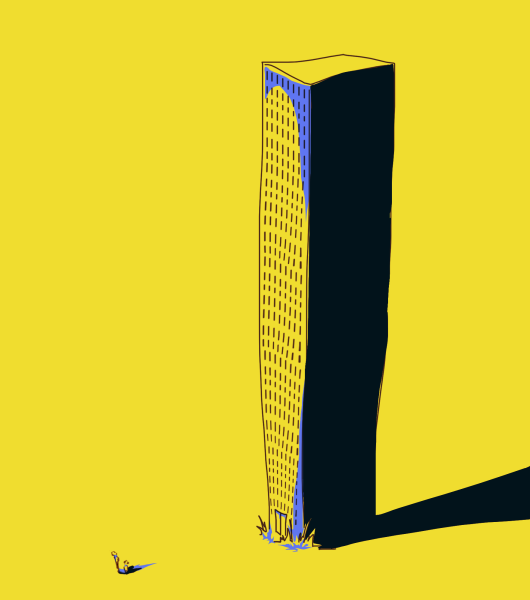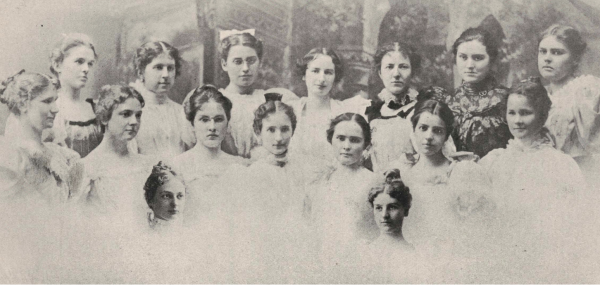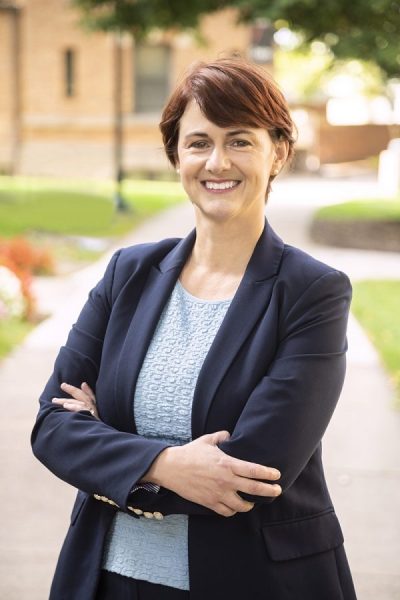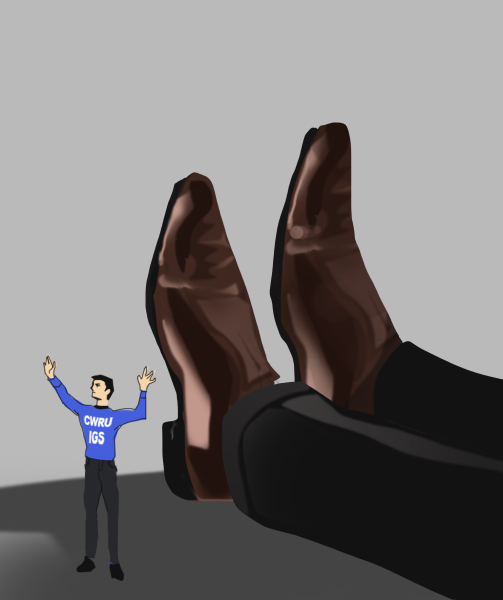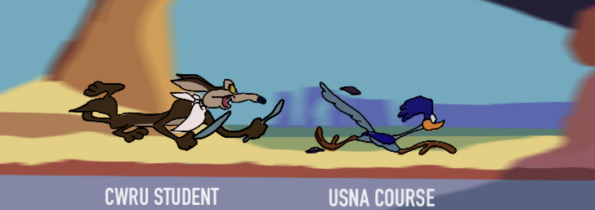Student activism spurs worries of faculty influencing student opinions
November 11, 2016
At the end of October, the Radical Student Union @ CWRU (RSU), a student activist organization that “seeks to discuss, organize and communicate, with other students in order to help build a more democratic and just society,” came under fire for screening the film “The Occupation of the American Mind: Israel’s Public Relations War in the United States,” a documentary about the Palestinian-Israeli conflict. Criticism came from students, teachers and even outside organizations. Brian Amkraut, executive director of the Siegal Lifelong Learning Program, was one of many who expressed concern over the screening of the documentary.
Though the content of the documentary itself bothered Amkraut, he also expressed concern over an issue that encompassed the screening of the film. Amkraut believes that the role of authoritative figures, such as faculty or the voices in the film, could influence the opinions of students. In the case of RSU’s screening of the documentary, Amkraut thinks the documentary could be having an influence on the opinions of students, whether they were aware or not.
“I think the reality is that faculty all across the country, when they’re engaging with students within the classroom and outside the classroom, have a role and voice of authority, and in my mind there is a responsibility that comes with that,” says Amkraut.
Amkraut does not believe that faculty or outside forces are directly telling students in the RSU or other student activism groups what to advocate. However he does think that the effects of authoritative influence on opinions act more subtly and can happen to anyone, not just students. Furthermore, he does not wish to imply that students are less capable of free thought when approaching subject matter like this. In the case of the RSU, Amkraut does not believe that the organization’s opinions have been fed to them.
“I think that students are quite bright and are capable of making choices on their own and generally do. But at the same time, even today when I am with someone who is my supervisor, what they say has weight and if I’m a student and I’m with my faculty, what they say has weight.”
According to Amkraut, the “one-sided” presentation of the subject matter in “The Occupation of the American Mind” was also an issue. One of his criticisms of the screening was that “it was not a conversation,” referring to the fact that there was no discussion following the presentation of the film. According to him, showing the film, which called upon students to act against media conspiracy, without any form of conversation or context is not conducive to creating a safe environment, especially considering the charged subject matter.
Ted Steinberg, RSU’s advisor and professor of Law, does not believe that outside opinions from faculty are influencing RSU. He notes that these notions are harmful and even insulting to the integrity of on-campus discussion.
“The people on this campus and off who think that professors such as myself are puppeteers pulling the strings of students are not only wrong; they are denigrating the intellect of our students and they are also being insulting toward me,” Steinberg responded.
As RSU’s advisor, Steinberg said he believes that answering questions and protecting students from attack are his main roles. Instilling opinions in them would take away from the effort that the students of RSU put forward to promote social action and discussion.
“These students are brave,” emphasizes Steinberg. “They have large hearts and a social conscience. They make their own decisions about what issues to tackle and what films to show.”
Gabriel Murcia, president of RSU, also shares Steinberg’s sentiment. “Our club by itself has done a lot of work to show on many issues, and to erase that by saying we are puppets of pro-Palestinian faculty is extremely insulting,” he said.
Amkraut said he understands these reactions. Though he does not claim that outside organizations have direct control over the opinions of students, he still stands firm on how authority can affect the opinions of students, and he still feels that it applies to the screening.
“Nobody wants to believe that they are being unduly influenced,” states Amkraut. “But, let’s be honest, we are influenced by the books we read and the people we talk to; and I think that it’s a reality that no matter what age you are, that the people who have authority, especially if their perspective aligns with yours, are going to reinforce an attitude you might have.”
RSU has reached out to Amkraut to discuss these past events, and Amkraut said he looks forward to meeting with them, adding that he wishes to create a safe environment in order to promote open discussion of topics like the Palestinian-Israeli conflict. He said he would like CWRU to be an environment that ”encourages conversation, civil discourse and is welcoming to all students of all backgrounds.”












